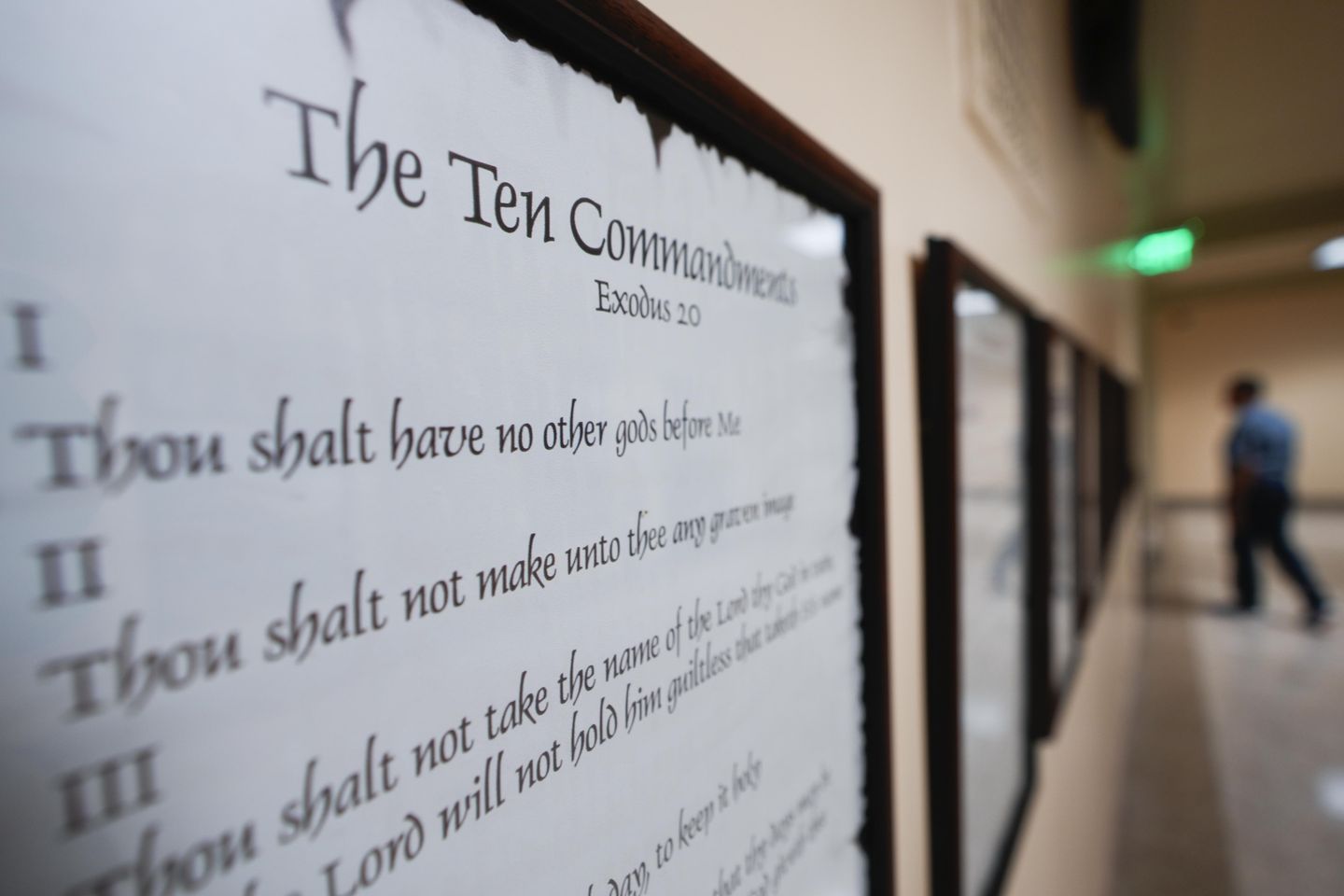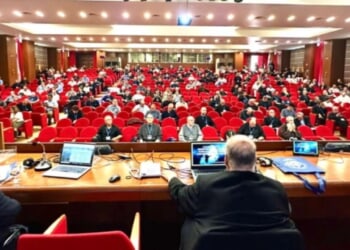
The Ten Commandments are faring poorly in the courts, where judges are taking a dim view of attempts by GOP-led states to post the Biblical law of God in their public schools.
A federal judge in Arkansas was the latest to shut down the effort, ruling earlier this month that the state should have known better.
“Why would Arkansas pass an obviously unconstitutional law? Most likely because the state is part of a coordinated strategy among several states to inject Christian religious doctrine into public-school classrooms,” wrote Judge Timothy L. Brooks, an Obama appointee.
Louisiana, Arkansas and Texas all have adopted Ten Commandments policies in the past several years, moving to reopen an issue that many legal scholars had thought was settled.
More than 40 years ago, in Stone v. Graham, the justices ruled it was unlawful for Kentucky to order classrooms to display the Ten Commandments in violation of the Establishment Clause of the First Amendment, which forbids the government from excessive entanglement with religion.
The states have said they’re not trying to promote religion but rather celebrate the centrality of the Ten Commandments themselves as history and as a critical source of legal authority in the American experiment.
Louisiana, for example, said posters of the commandments could be placed alongside the Mayflower Compact or the Declaration of Independence.
Judge Brooks said it may sound far-fetched to Americans to think that what the states are doing amounts to an establishment of religion, but he said the founders were wary.
“James Madison, the author of the Bill of Rights, warned that we should ’take alarm at the first experiment on our liberties,’” the judge wrote. “That ’experiment’ is happening now, in Arkansas.”
His ruling follows one by another Obama appointee, Judge John W. DeGravelles, who last year halted Louisiana’s attempt. That ruling was upheld by the 5th U.S. Circuit Court of Appeals, with two Democratic appointees and one George W. Bush pick keeping the law from taking effect.
Liz Murrill, Louisiana’s attorney general, said the state will keep battling.
“We will immediately seek relief from the full Fifth Circuit and, if necessary, the United States Supreme Court,” she said.
Texas is also facing a legal challenge over its law.
The American Civil Liberties Union challenged the requirement last month but the judge has not issued a decision over whether or not to allow the Texas law — which is nearly identical to the Arkansas measure — to take effect.
Judge Brooks said he expects states to keep testing the limits until “the Supreme Court puts its foot down.”
Robert W. Tuttle, associate dean and law professor at George Washington University, said the justices won’t be eager to mess with the decades-old precedent limiting display of the commandments.
“I don’t think the Court will be eager to take such a case, because up until now it has made no (that is, zero) changes to the school prayer cases and their principle that the government may not engage in religious worship or indoctrination,” he said in an email to The Washington Times.
It would take four justices to vote in favor of hearing an appeal for oral arguments to be scheduled.
— Stephen Dinan contributed to this report.




![Gavin Newsom Threatens to 'Punch These Sons of B*thces in the Mouth' [WATCH]](https://www.right2024.com/wp-content/uploads/2025/08/Gavin-Newsom-Threatens-to-Punch-These-Sons-of-Bthces-in-350x250.jpg)
![ICE Arrests Illegal Alien Influencer During Her Livestream in Los Angeles: ‘You Bet We Did’ [WATCH]](https://www.right2024.com/wp-content/uploads/2025/08/ICE-Arrests-Illegal-Alien-Influencer-During-Her-Livestream-in-Los-350x250.jpg)








